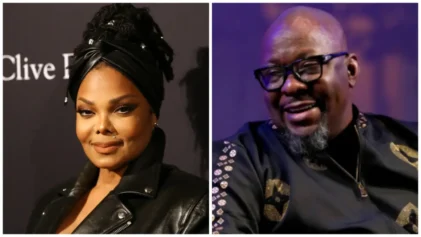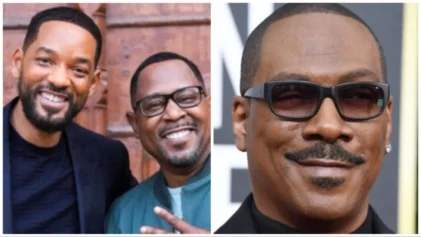If there’s two men that’s been associated with Jada Pinkett Smith throughout much of her career, it’s been Tupac Shakur and Will Smith.
Smith, of course, has been married to the actress for 22 years. Shakur, meanwhile, has been friends with Pinkett Smith since their days of being classmates in Baltimore. Pinkett Smith has often talked about her relationship with the late rapper, mostly after he was killed in 1996.
The “Jason’s Lyric” star discussed both men during an interview with journalist Josh Horowitz’s “Personal Space” and Shakur came up first.
“I got ‘Menace II Society’ through Tupac,” she revealed. “Tupac was part of ‘Menace II Society’ first, and he was the one that put me on. He was the one that called the Hughes brothers and was like, ‘You got to meet my homegirl Jada’ and he called me and said ‘I’m part of this movie. I think you’d be great for this role.'”
Shakur was ultimately fired from the film after having creative differences with the Hughes Brothers, the creators of the film, and got into a fight with Allen Hughes afterwards.
“There’s not a day that goes by that I don’t think about Pac,” Pinkett Smith added. “I think about him every single day.”
The “Different World” alum then moved on to her hit series “Red Table Talk,” where she tackles sensitive issues with her daughter Willow Smith and mother Adrienne Banfield-Jones.
Pinkett Smith said the type of honesty that’s on the series is the type of raw truth that she received from others, which helped her marriage.
“Some of those stories helped me save my relationship with Will,” she admitted. “Some of those stories prevented me from making some of the biggest mistakes with my children. And that’s what life’s about, us being able to gift each other in that way though those experiences.”
The actress also talked about why she believes “Red Table Talk” has resonated with so many.
“I think that people are ready for that kind of transparency in their own lives,” she theorized. “And I think on top of that, just being able to have conversations that you wouldn’t necessarily talk about in the open.”


